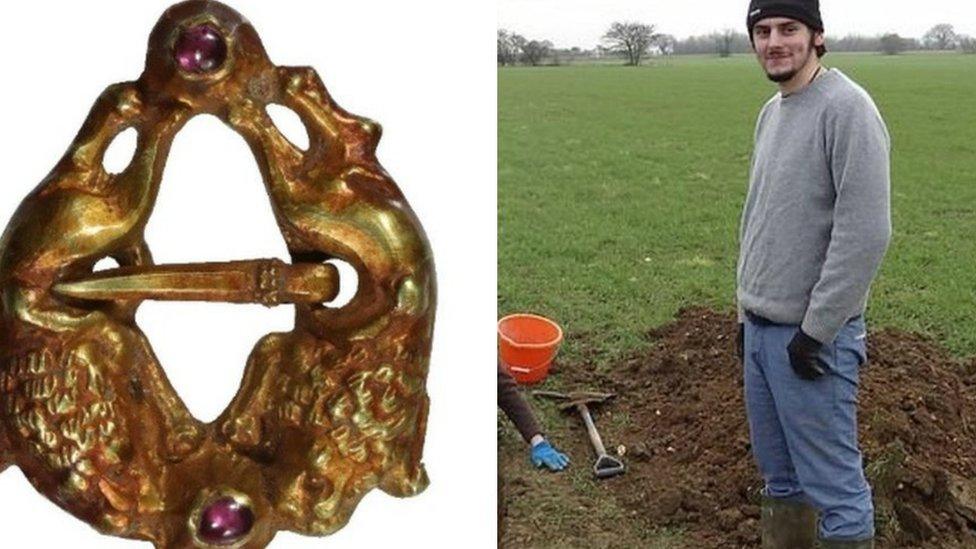Metal detectorists' finds declared treasure
- Published
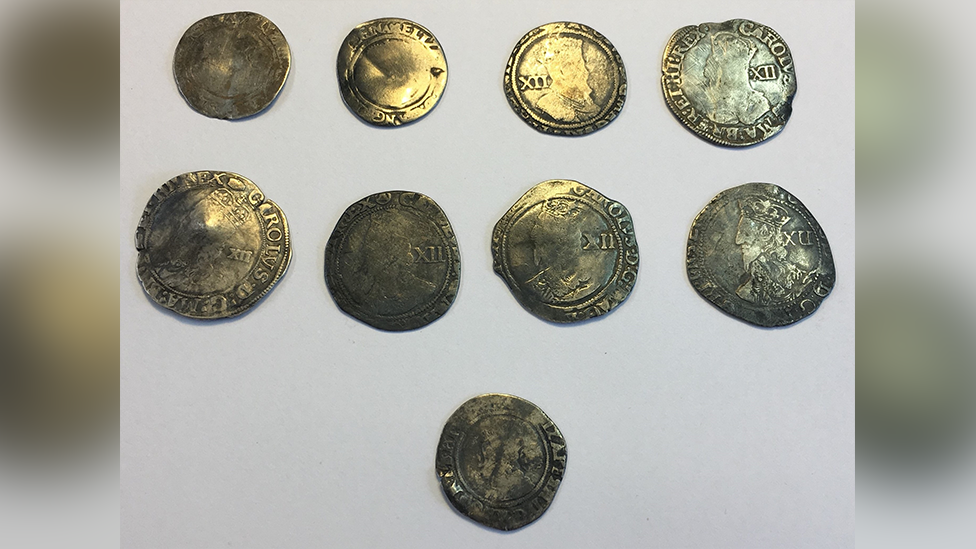
A group of post-Medieval silver coins found in Trefnant, Flintshire
Six finds by metal detectorists including brooches and coins have been officially declared as treasure.
All the discoveries were made in Denbighshire and Flintshire and date from the 13th to the 17th Century.
Assistant coroner for north Wales Joanne Lees declared the finds to be treasure at an inquest in Ruthin, Denbighshire, on Monday.
National Museum Wales said up to 30 items of treasure were discovered in Wales each year.
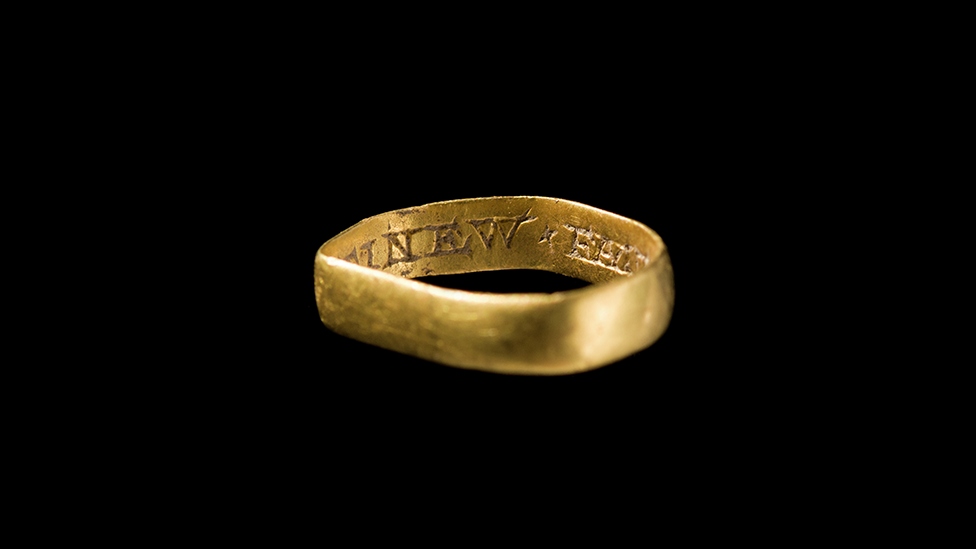
A post-Medieval gold ring found in Llanfair Dyffryn Clwyd, Denbighshire
Treasure must be reported to the local coroner within 14 days of finding it.
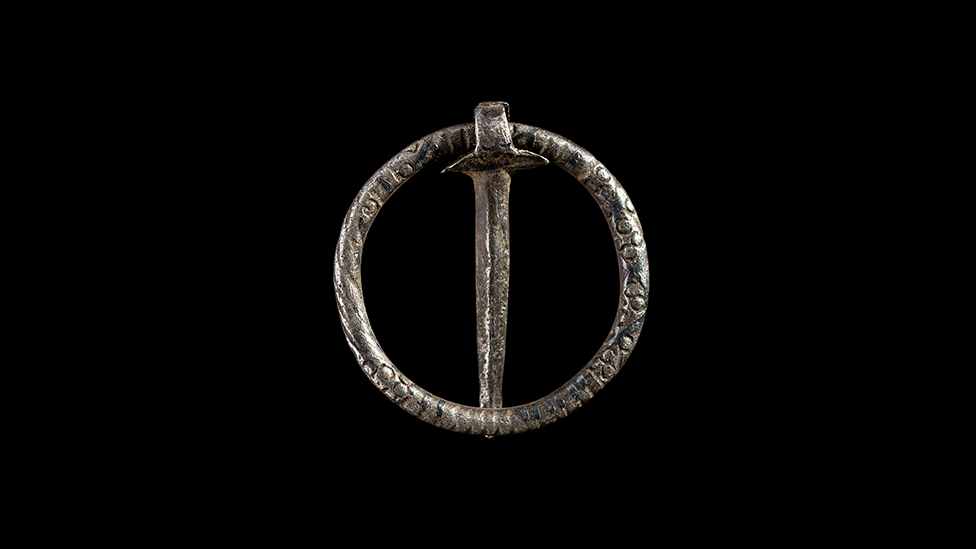
A Medieval silver brooch found in Cilcain, Flintshire
The six finds are:
A Medieval silver brooch found in Llanfynydd, Flintshire
A Medieval silver brooch found in Cilcain, Flintshire
A Medieval silver-gilt ring found in Cilcain, Flintshire
A post-Medieval gold ring found in Llanfair Dyffryn Clwyd, Denbighshire
A post-Medieval silver bodkin fragment found in Llanbedr Dyffryn Clwyd, Denbighshire
A group of post-Medieval silver coins found in Trefnant, Flintshire
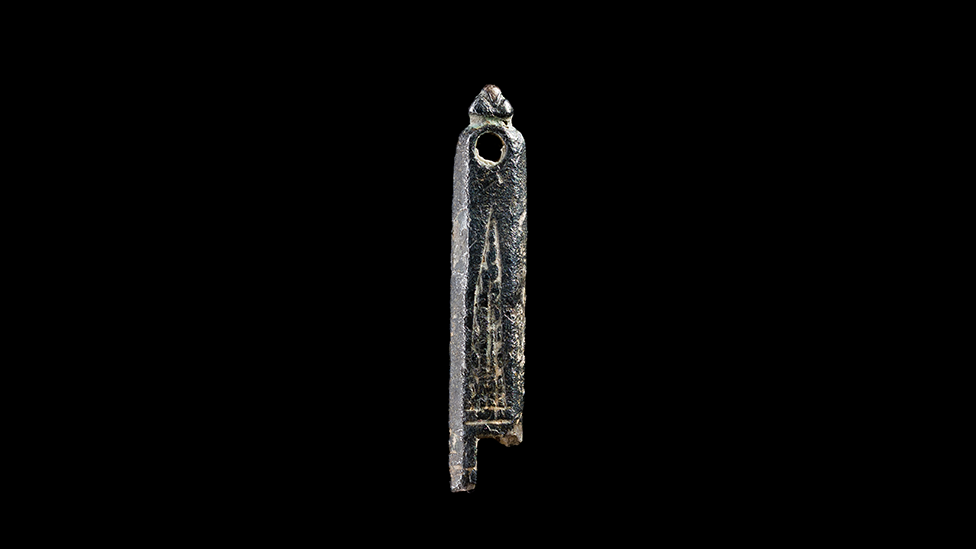
A post-Medieval silver bodkin fragment found in Llanbedr Dyffryn Clwyd, Denbighshire
The eight silver coins date to the reigns of Elizabeth I, James I and Charles I and were discovered by Stephen Marnick and Richard Leech in Trefnant Community, Flintshire, in September 2018.
The National Museum of Wales said the coins were probably buried for safekeeping during the English Civil War.
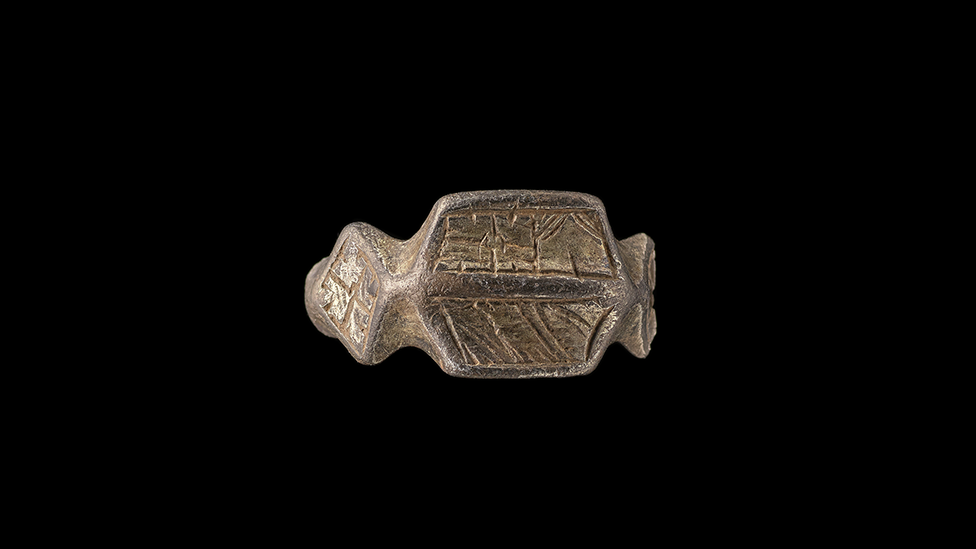
A Medieval silver-gilt ring, found in Cilcain, Flintshire
Senior curator of numismatics and the Welsh economy Alastair Willis said: "What's particularly interesting is that two of the coins were struck at the Tower of London by Parliament after the start of the war.
"They still bear Charles I's portrait, however, because Parliament claimed that it was fighting the king's advisers, not the king himself."
National Museum Wales said both Denbighshire Museums Service and Flintshire Museums Service had expressed an interest in acquiring the finds after they have been independently valued by the Treasure Valuation Committee.
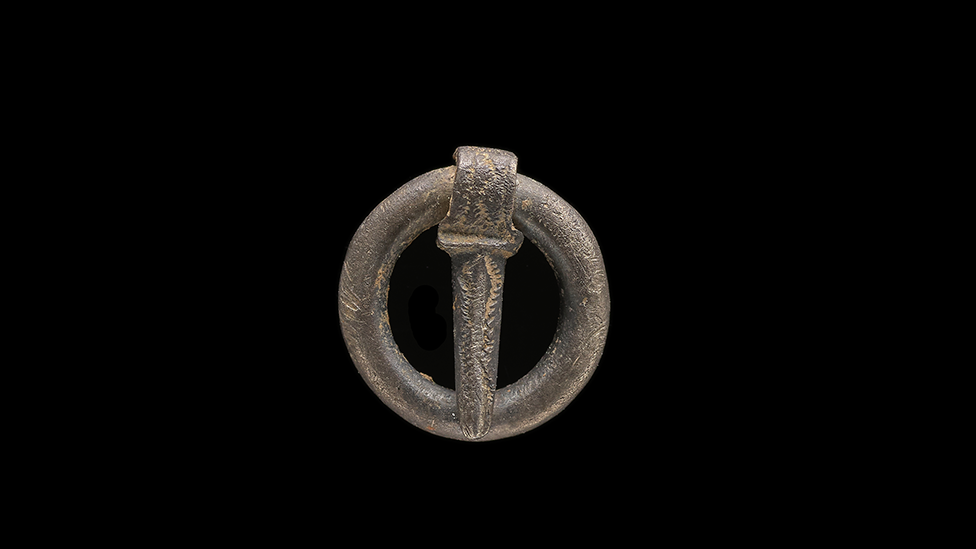
A medieval silver brooch, found in Llanfynydd, Flintshire
- Published31 January 2019
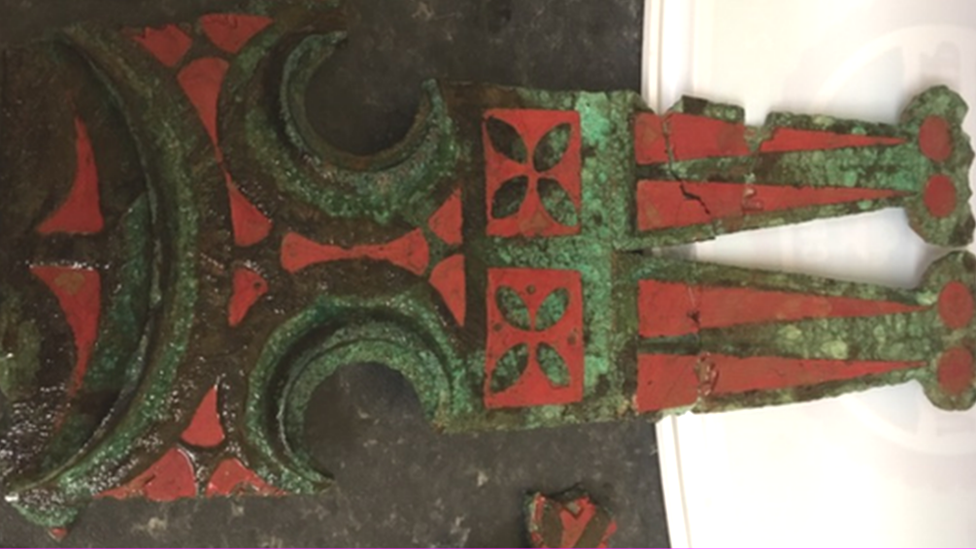
- Published5 May 2019
